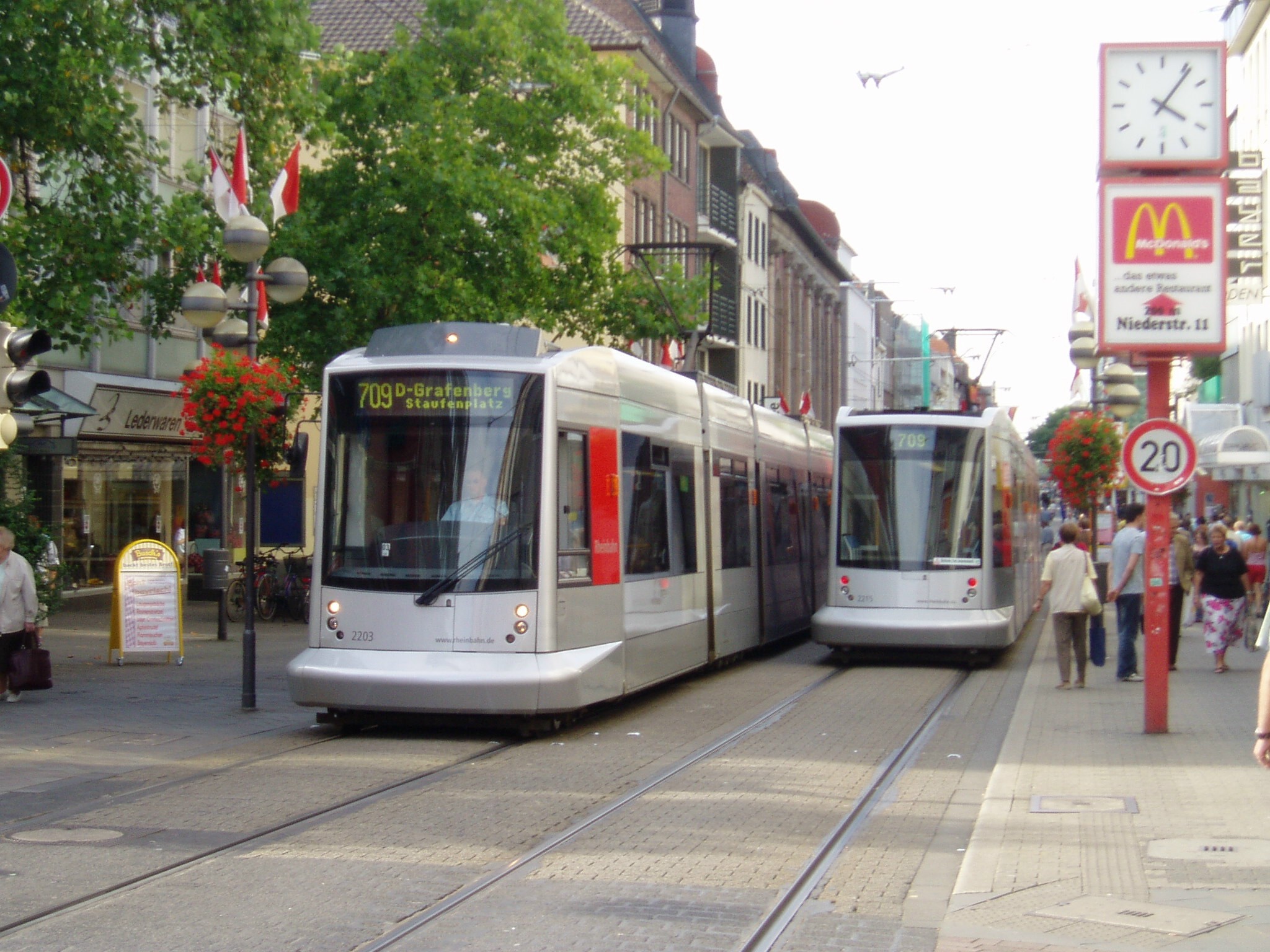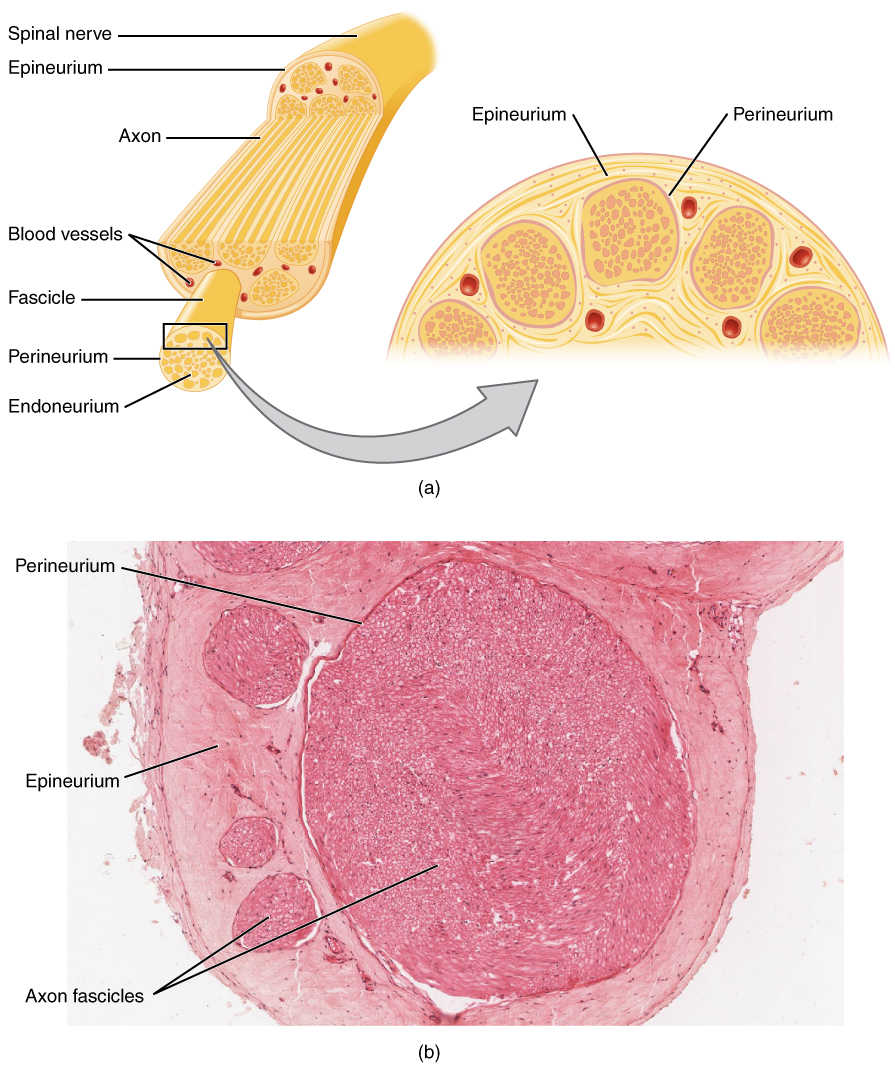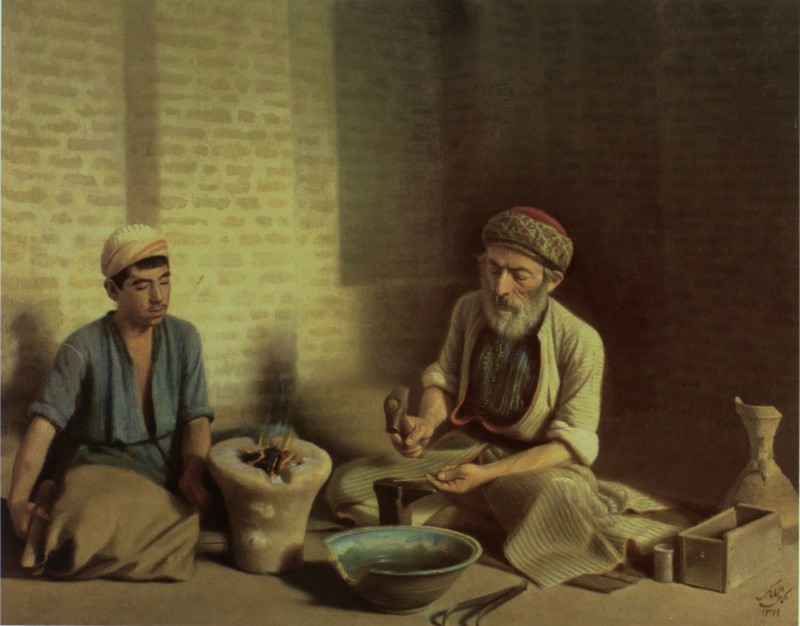|
Theodor Schwann
Theodor Schwann (; 7 December 181011 January 1882) was a German physician and physiologist. His most significant contribution to biology is considered to be the extension of cell theory to animals. Other contributions include the discovery of Schwann cells in the peripheral nervous system, the discovery and study of pepsin, the discovery of the organic nature of yeast, and the invention of the term "metabolism". Early life and education Theodor Schwann was born in Neuss on 7 December 1810 to Leonard Schwann and Elisabeth Rottels. Leonard Schwann was a goldsmith and later a printer. Theodor Schwann studied at the Dreikönigsgymnasium (also known as the Tricoronatum or Three Kings School), a Jesuit school in Cologne. Schwann was a devout Roman Catholic. In Cologne his religious instructor , a priest and novelist, emphasized the individuality of the human soul and the importance of free will. In 1829, Schwann enrolled at the University of Bonn in the premedical curriculum. ... [...More Info...] [...Related Items...] OR: [Wikipedia] [Google] [Baidu] |
Neuss
Neuss (; spelled ''Neuß'' until 1968; li, Nüss ; la, Novaesium) is a city in North Rhine-Westphalia, Germany. It is located on the west bank of the Rhine opposite Düsseldorf. Neuss is the largest city within the Rhein-Kreis Neuss district. It is primarily known for its historic Roman sites, as well as the annual Neusser Bürger-Schützenfest. Neuss and Trier share the title of "Germany's oldest city"; and in 1984 Neuss celebrated the 2000th anniversary of its founding in 16 BCE. History Ancient Rome Neuss was founded by the Romans in 16 BC as a military fortification (''castrum'') with the current city to the north of the castrum, at the confluence of the rivers Rhine and Erft, with the name of Novaesium. Legio XVI Gallica ("Gallic 16th Legion") of the Roman army was stationed here in 43-70 AD. It was disbanded after surrendering during the Batavian rebellion (AD 70). Later a civil settlement was founded in the area of today's centre of the town during the 1st centur ... [...More Info...] [...Related Items...] OR: [Wikipedia] [Google] [Baidu] |
Pepsin
Pepsin is an endopeptidase that breaks down proteins into smaller peptides. It is produced in the gastric chief cells of the stomach lining and is one of the main digestive enzymes in the digestive systems of humans and many other animals, where it helps digest the proteins in food. Pepsin is an aspartic protease, using a catalytic aspartate in its active site. It is one of three principal endopeptidases (enzymes cutting proteins in the middle) in the human digestive system, the other two being chymotrypsin and trypsin. There are also exopeptidases which remove individual amino acids at both ends of proteins (carboxypeptidases produced by the pancreas and aminopeptidases secreted by the small intestine). During the process of digestion, these enzymes, each of which is specialized in severing links between particular types of amino acids, collaborate to break down dietary proteins into their components, i.e., peptides and amino acids, which can be readily absorbed by the sma ... [...More Info...] [...Related Items...] OR: [Wikipedia] [Google] [Baidu] |
Muscles
Skeletal muscles (commonly referred to as muscles) are organs of the vertebrate muscular system and typically are attached by tendons to bones of a skeleton. The muscle cells of skeletal muscles are much longer than in the other types of muscle tissue, and are often known as muscle fibers. The muscle tissue of a skeletal muscle is striated – having a striped appearance due to the arrangement of the sarcomeres. Skeletal muscles are voluntary muscles under the control of the somatic nervous system. The other types of muscle are cardiac muscle which is also striated and smooth muscle which is non-striated; both of these types of muscle tissue are classified as involuntary, or, under the control of the autonomic nervous system. A skeletal muscle contains multiple fascicles – bundles of muscle fibers. Each individual fiber, and each muscle is surrounded by a type of connective tissue layer of fascia. Muscle fibers are formed from the fusion of developmental myoblasts in a p ... [...More Info...] [...Related Items...] OR: [Wikipedia] [Google] [Baidu] |
Nerves
A nerve is an enclosed, cable-like bundle of nerve fibers (called axons) in the peripheral nervous system. A nerve transmits electrical impulses. It is the basic unit of the peripheral nervous system. A nerve provides a common pathway for the electrochemical nerve impulses called action potentials that are transmitted along each of the axons to peripheral organs or, in the case of sensory nerves, from the periphery back to the central nervous system. Each axon, within the nerve, is an extension of an individual neuron, along with other supportive cells such as some Schwann cells that coat the axons in myelin. Within a nerve, each axon is surrounded by a layer of connective tissue called the endoneurium. The axons are bundled together into groups called Nerve fascicle, fascicles, and each fascicle is wrapped in a layer of connective tissue called the perineurium. Finally, the entire nerve is wrapped in a layer of connective tissue called the epineurium. Nerve cells (often called ... [...More Info...] [...Related Items...] OR: [Wikipedia] [Google] [Baidu] |
Thaler
A thaler (; also taler, from german: Taler) is one of the large silver coins minted in the states and territories of the Holy Roman Empire and the Habsburg monarchy during the Early Modern period. A ''thaler'' size silver coin has a diameter of about and a weight of about 25 to 30 grams (roughly 1 ounce). The word is shortened from ''Joachimsthaler'', the original ''thaler'' coin minted in Joachimstal, Bohemia, from 1520. While the first standard coin of the Holy Roman Empire was the ''Guldengroschen'' of 1524, its longest-lived coin was the ''Reichsthaler (Reichstaler)'', which contained Cologne Mark of fine silver (or 25.984 g), and which was issued in various versions from 1566 to 1875. From the 17th century a lesser-valued ''North German thaler'' currency unit emerged, which by the 19th century became par with the ''Vereinsthaler''. The ''thaler'' silver coin type continued to be minted until the 20th century in the form of the Mexican peso until 1914, the five S ... [...More Info...] [...Related Items...] OR: [Wikipedia] [Google] [Baidu] |
University Of Berlin
Humboldt-Universität zu Berlin (german: Humboldt-Universität zu Berlin, abbreviated HU Berlin) is a German public research university in the central borough of Mitte in Berlin. It was established by Frederick William III on the initiative of Wilhelm von Humboldt, Johann Gottlieb Fichte and Friedrich Ernst Daniel Schleiermacher as the University of Berlin () in 1809, and opened in 1810, making it the oldest of Berlin's four universities. From 1828 until its closure in 1945, it was named Friedrich Wilhelm University (german: Friedrich-Wilhelms-Universität). During the Cold War, the university found itself in East Berlin and was ''de facto'' split in two when the Free University of Berlin opened in West Berlin. The university received its current name in honour of Alexander and Wilhelm von Humboldt in 1949. The university is divided into nine faculties including its medical school shared with the Freie Universität Berlin. The university has a student enrollment of around ... [...More Info...] [...Related Items...] OR: [Wikipedia] [Google] [Baidu] |
Physiologist
Physiology (; ) is the scientific study of functions and mechanisms in a living system. As a sub-discipline of biology, physiology focuses on how organisms, organ systems, individual organs, cells, and biomolecules carry out the chemical and physical functions in a living system. According to the classes of organisms, the field can be divided into medical physiology, animal physiology, plant physiology, cell physiology, and comparative physiology. Central to physiological functioning are biophysical and biochemical processes, homeostatic control mechanisms, and communication between cells. ''Physiological state'' is the condition of normal function. In contrast, ''pathological state'' refers to abnormal conditions, including human diseases. The Nobel Prize in Physiology or Medicine is awarded by the Royal Swedish Academy of Sciences for exceptional scientific achievements in physiology related to the field of medicine. Foundations Cells Although there are difference ... [...More Info...] [...Related Items...] OR: [Wikipedia] [Google] [Baidu] |
Bonn
The federal city of Bonn ( lat, Bonna) is a city on the banks of the Rhine in the German state of North Rhine-Westphalia, with a population of over 300,000. About south-southeast of Cologne, Bonn is in the southernmost part of the Rhine-Ruhr region, Germany's largest metropolitan area, with over 11 million inhabitants. It is a university city and the birthplace of Ludwig van Beethoven. Founded in the 1st century BC as a Roman settlement in the province Germania Inferior, Bonn is one of Germany's oldest cities. It was the capital city of the Electorate of Cologne from 1597 to 1794, and residence of the Archbishops and Prince-electors of Cologne. From 1949 to 1990, Bonn was the capital of West Germany, and Germany's present constitution, the Basic Law, was declared in the city in 1949. The era when Bonn served as the capital of West Germany is referred to by historians as the Bonn Republic. From 1990 to 1999, Bonn served as the seat of government – but no longer capital – ... [...More Info...] [...Related Items...] OR: [Wikipedia] [Google] [Baidu] |
Free Will
Free will is the capacity of agents to choose between different possible courses of action unimpeded. Free will is closely linked to the concepts of moral responsibility, praise, culpability, sin, and other judgements which apply only to actions that are freely chosen. It is also connected with the concepts of advice, persuasion, deliberation, and prohibition. Traditionally, only actions that are freely willed are seen as deserving credit or blame. Whether free will exists, what it is and the implications of whether it exists or not are some of the longest running debates of philosophy and religion. Some conceive of free will as the right to act outside of external influences or wishes. Some conceive free will to be the capacity to make choices undetermined by past events. Determinism suggests that only one course of events is possible, which is inconsistent with a libertarian model of free will. Ancient Greek philosophy identified this issue, which remains a major focus o ... [...More Info...] [...Related Items...] OR: [Wikipedia] [Google] [Baidu] |
Roman Catholic
Roman or Romans most often refers to: *Rome, the capital city of Italy *Ancient Rome, Roman civilization from 8th century BC to 5th century AD *Roman people, the people of ancient Rome *'' Epistle to the Romans'', shortened to ''Romans'', a letter in the New Testament of the Christian Bible Roman or Romans may also refer to: Arts and entertainment Music * Romans (band), a Japanese pop group * ''Roman'' (album), by Sound Horizon, 2006 * ''Roman'' (EP), by Teen Top, 2011 *" Roman (My Dear Boy)", a 2004 single by Morning Musume Film and television * Film Roman, an American animation studio * ''Roman'' (film), a 2006 American suspense-horror film * ''Romans'' (2013 film), an Indian Malayalam comedy film * ''Romans'' (2017 film), a British drama film * ''The Romans'' (''Doctor Who''), a serial in British TV series People *Roman (given name), a given name, including a list of people and fictional characters *Roman (surname), including a list of people named Roman or Romans *Ῥωμ� ... [...More Info...] [...Related Items...] OR: [Wikipedia] [Google] [Baidu] |
Dreikönigsgymnasium
The Dreikönigsgymnasium ("Tricoronatum", meaning "Three Kings School", sometimes called in English the College of the Three Crowns) is a regular public Gymnasium (school), Gymnasium located in Cologne, Germany. Founded in 1450 by the city of Cologne, it is the oldest school in Cologne and one of the oldest in Germany. In 1556 it was transferred to Jesuit control through the son of the mayor, who had become a Jesuit. The Jesuits continued to run the school until 1778, when control was restored to the city after the Suppression of the Society of Jesus#Papal suppression of 1773, papal suppression of the Jesuits of 1773. Alumni * Julius Echter von Mespelbrunn (1545–1617) was a Prince-Bishop of Bishopric of Würzburg, Würzburg * Dietrich von Fürstenberg (1546–1618), Prince-Bishop of the Roman Catholic Diocese of Paderborn * Johann Adam Schall von Bell (1592–1666), Jesuit missionary to China * Maximilian Henry of Bavaria (1621-1688), Archbishop-Elector of Cologne * Franz Egon of ... [...More Info...] [...Related Items...] OR: [Wikipedia] [Google] [Baidu] |
Goldsmith
A goldsmith is a Metalworking, metalworker who specializes in working with gold and other precious metals. Nowadays they mainly specialize in jewelry-making but historically, goldsmiths have also made cutlery, silverware, platter (dishware), platters, goblets, decorative and serviceable utensils, and ceremonial or religious items. Goldsmiths must be skilled in forming metal through file (tool), filing, brazing, soldering, sawing, forging, Casting (metalworking), casting, and polishing. The trade has very often included jewelry-making skills, as well as the very similar skills of the silversmith. Traditionally, these skills had been passed along through apprenticeships; more recently jewelry arts schools, specializing in teaching goldsmithing and a multitude of skills falling under the jewelry arts umbrella, are available. Many universities and junior colleges also offer goldsmithing, silversmithing, and metal arts fabrication as a part of their fine arts curriculum. Gold Com ... [...More Info...] [...Related Items...] OR: [Wikipedia] [Google] [Baidu] |
_Schwann_(1810-1882)%2C_fondateur_de_la_théorie_cellulaire_(1839)%2C_Institut_de_Zoologie%2C_Liège.jpg)







